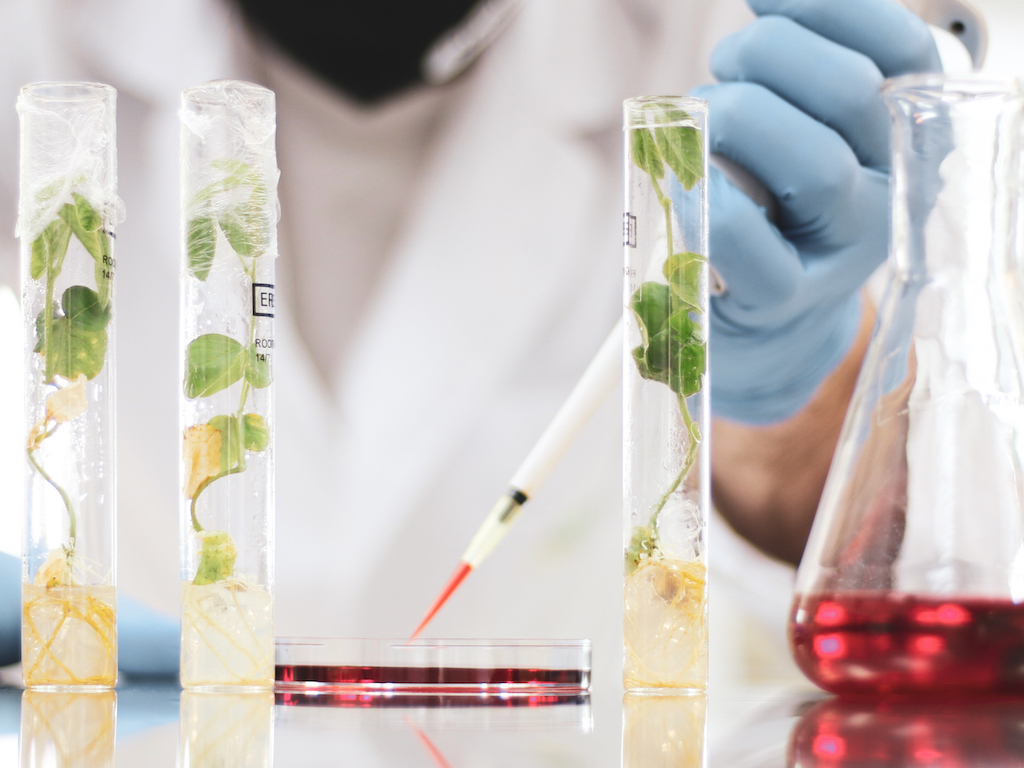3 Mins Read
Moolec Science, the food tech dedicated to developing hybrid plant-based and cell-based alternative proteins, has announced its expansion into the animal-free dairy and egg categories. Using its molecular farming technological platform, the startup hopes to further increase its range, which already includes several alternative meat products, to remove animals from the supply chain in “every segment of the food industry”.
Based in Warwick and launched in November last year, Moolec Science is now expanding its currently meat-focused product range to include alternative eggs and dairy offerings. It will take its proprietary molecular farming hybrid approach, which combines plant-based and cell-based technology, to develop these products.
The food tech says that it will co-express oat concentrates with whey proteins to develop its alternative dairy products, while ovum protein will be engineered and incorporated into wheat ingredients to develop an animal-free egg analogue targeting disruption in the bakery industry. Moolec Farming’s existing line of alternative meats are developed with selected porcine and bovine proteins with protein rich plant-based crops like peas.
We are going to let the plants, the sun and the land work and, after only basic processing, Moolec’s product will have superior nutritional and functional properties for a fraction of the cost.
Henk Hoogenkamp, Co-Founder & CPO, Moolec Science
“Our selection of dairy and egg proteins will be produced in the host crop. We are going to let the plants, the sun and the land work and, after only basic processing, Moolec’s product will have superior nutritional and functional properties for a fraction of the cost,” explained Moolec Science co-founder and CPO Henk Hoogenkamp.
“Our wheat and egg protein products will have a higher content of digestible protein and thus, improved nutritional value,” Hoogenkamp added.
Commenting on its expansion into new categories, CEO and co-founder Gastón Paladini said: “We were the first team to fully deregulate a Molecular Farming crop and its functionalised protein concentrate for its use in the cheese making industry, a product that has been successfully used in the manufacturing of thousands of tons of soft and hard cheeses. Since then, we expanded to animal-free meat ingredients and are now announcing a broadening of our pipeline into dairy and egg replacements.”
Paladini added that the firm intends to partner with food industry producers and provide them with its cost-effective hybrid alternative protein solutions.
“We want to collaborate with B2C food companies to offer the optimal journey and proper affordability for consumers by using our integral animal-free solutions,” Paladini explained.
While headquartered in the U.K., the Moolec Science team spans across the Netherlands, Uruguay, the U.S. and Argentina, and hopes to use its hybrid approach to accelerate the elimination of animals from the protein supply chain.
We expanded to animal-free meat ingredients and are now announcing a broadening of our pipeline into dairy and egg replacements.
Gastón Paladini, Co-Founder & CEO, Moolec Science
It recently acquired a nutritional oil technology for producing gamma-linolenic acid, which will be used alongside its own bovine chymosin production platform to formulate alternative proteins that are “at least 10-times more cost-effective” than existing products on the market.
Other food techs have also begun exploring hybrid novel alternative proteins, though they are not exclusively dedicated to using this approach. Cell-based meat firm Meat-Tech 3D, for example, has acquired cultivated fat startup Peace of Meat with the view to launch products that incorporate both plant-based and cell-based ingredients.
Meanwhile, companies dedicated to developing cell-cultured animal fats, such as Mission Barns and Hoxton Farms, plan to partner with plant-based protein producers to incorporate their real cultured animal fat into their products.
Lead image courtesy of Moolec Science.




